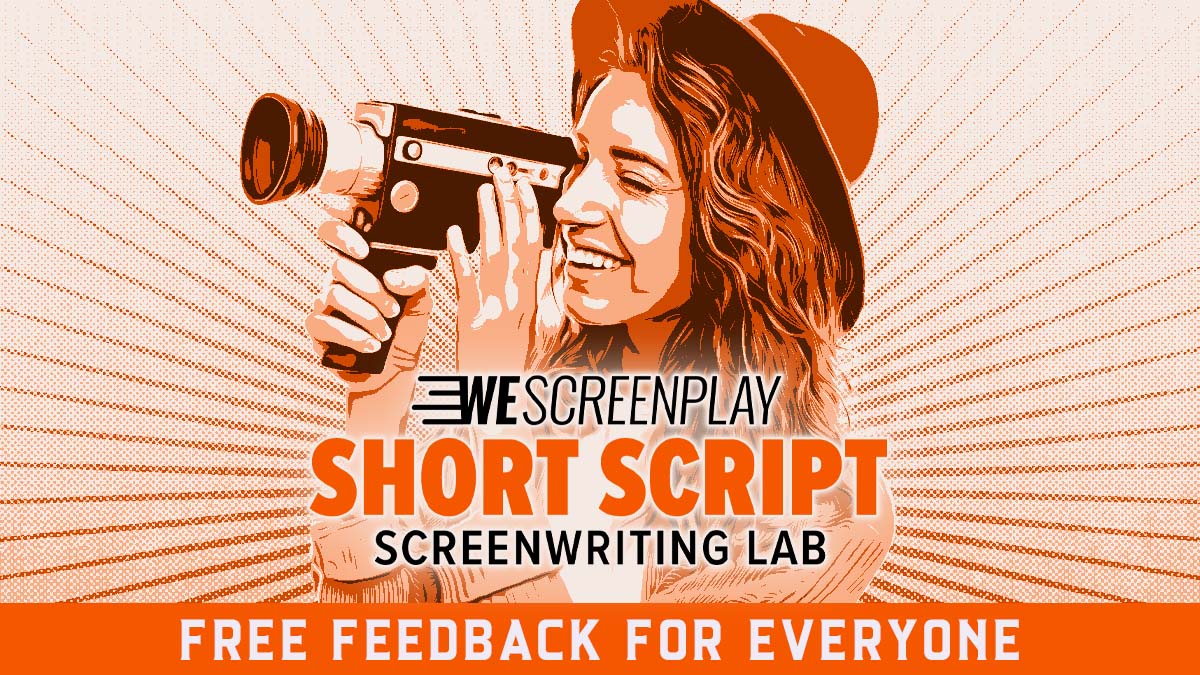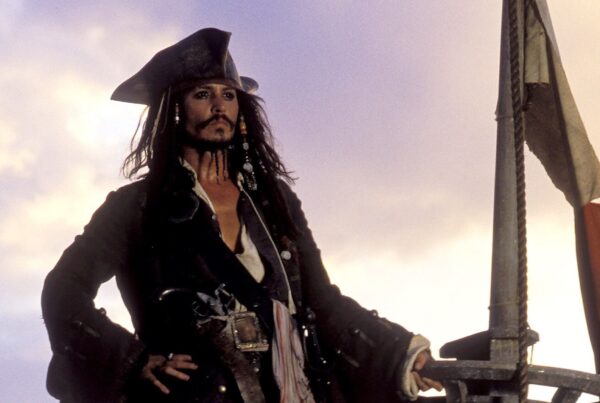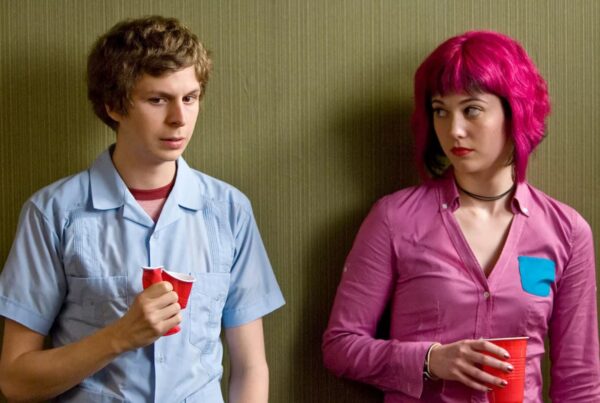
When it comes to mastering the skills necessary to write a truly great script, aspiring screenwriters have a few different options. The first, and most obvious, is to write. A lot. After all, practice makes perfect and the only sure-fire way to sharpen your skills is to maintain a healthy level of productivity. Get in the habit of having a script on the go – at all times.
Another useful habit – beyond watching movies and reading scripts – is to learn from the masters. Textbooks are great, but when it comes to grasping the special sauce that unites all great screenplays, look no further than the guys and gals that actually write them. Fortunately for us, our current digital age means were never more than a few clicks away from the screenwriters that inspired us in the first place. From TED Talks to BAFTA's Guru series, screenwriting enlightenment is always just around the corner.
Does being a great screenwriter automatically make you a great teacher? Of course not. But when it comes to process, craftsmenship and industry experience, there's nothing better – or more informative – than a good pep-talk from the pros.
Here are ten of our favorites.
Tricks of the trade from Aaron Sorkin (The Social Network):
“Rather than tell the audience who the character is, I like to show the audience what a character wants. It all boils down to intentions and obstacles. Somebody wants something; something is standing in their way of getting it. They want the girl, they want the money, they want to get to Philadelphia — it doesn’t matter, but they have to want it bad.
If they need it, that’s even better. Something formidable is in standing in their way, and the tactics that character uses to overcome the obstacle is going to define who the character is. It’s like having a Christmas tree and then hanging ornaments on it…I worship at the temple of intention and obstacle. That’s the drive shaft of the car.”
Kenneth Lonergan (Manchester By The Sea) on naturalistic storytelling:
"When something feels false to me, why does it feel false? I think when films feel false, or TV feels, or anything fictional feels false, I think it’s because the creators are trying to… They’re not reflecting their own experience, I think they’re trying to guess what the audience is like. The see someone talk in a certain way, or behave in a certain way. I think they’re seeing it not from the point of view of… Not as real."
A lecture with Charlie Kaufman (Being John Malkovich):
“Storytelling is inherently dangerous. Consider a traumatic event in your life. Think about how you experienced it. Now think about how you told it to someone a year later. Now think about how you told it for the hundredth time. It's not the same thing. Most people think perspective is a good thing: you can figure out characters' arcs, you can apply a moral, you can tell it with understanding and context. But this perspective is a misrepresentation: it's a reconstruction with meaning, and as such bears little resemblance to the event.”
Setting a story in motion with Michael Arndt (Toy Story 3):
“Usually what you do when you’re introducing your main character is that you show them doing what they love most. This is their grand passion, it’s their defining trait, it’s the center of their whole universe. So you start with your main character, you introduce the universe they live in, and you show your hero doing the thing they love to do most. But then your character needs one more thing. He needs a flaw. Now what’s key here is that the character’s flaw actually comes out of her grand passion. It’s a good thing that’s just been taken too far. And then you want to establish storm clouds on the horizon, which is your character is walking down the road of life, it’s a nice bright sunny day, but off on the horizon, there are some dark clouds gathering. And then… BABOOM! Something comes in and totally blows apart your joyous life and turns it upside down.”
J.J. Abrams (Star Wars: The Force Awakens) and the mystery box:
"…there's the thing of mystery in terms of imagination — the withholding of information. You know, doing that intentionally is much more engaging. Whether it's like the shark in "Jaws" — if Spielberg's mechanical shark, Bruce, had worked, it would not be remotely as scary; you would have seen it too much. In "Alien", they never really showed the alien: terrifying! Even in a movie, like a romantic comedy, "The Graduate," they're having that date, remember? And they're in the car, and it's loud, and so they put the top up. They're in there — you don't hear anything they're saying! You can't hear a word! But it's the most romantic date ever. And you love it because you don't hear it.So to me, there's that."
Screenwriting lecture with David Goyer (Batman Begins):
"I believe when you're writing film or television, you can't rely on a crutch or rule that exists outside of the narrative of the film. So the situation was, Zod says 'I'm not going to stop until you kill me or I kill you.' The reality is no prison on the planet could hold him and in our film Superman can't fly to the moon, and we didn't want to come up with that crutch. Also our movie was in a way Superman Begins, he's not really Superman until the end of the film. We wanted him to have had that experience of having taken a life and carry that through onto the next films. Because he's Superman and because people idolise him he will have to hold himself to a higher standard."
Paul Haggis (Crash) on screenwriting:
"I don’t think writers should write about answers. I think they should write about questions. And the question I asked myself is 'what if that person who had come to change the locks – what if he had been young, hispanic, had what, in my ignorance, looked to be gang tattoos. Would I have felt safe?' And I said, 'no, I don't think I would have,' and I said 'that's really dark territory. I have to write about this.'"
Dustin Lance Black (Milk) on his creative process:
“I boil down the moments that I think are cinematic, the moments that I think are necessary for the story. I start to put them onto notecards. Each notecard should be as pure and singular an idea as possible because I want to be able to move all the pieces around and be able to create a film. It’s about then taking these cards and for me, over the course of weeks to months, laying them out and distilling down what is necessary to tell the story.”
Screenwriting lecture with Park Chan-Wook:
"But what I want to say is that when you are writing all by yourself and you are falling into the trap of being so obsessed with your own work and being so stubborn about what you are writing, and you’re following only that single path, and you end up to go into all this self-contentment and go into self-praise of what you’ve done, become so proud of what you’ve done, that is something you should really be conscious against."
Ira Glass on the building blocks of a good story (four-part series):
"Nobody tells this to people who are beginners, I wish someone told me. All of us who do creative work, we get into it because we have good taste. But there is this gap. For the first couple years you make stuff, it’s just not that good. It’s trying to be good, it has potential, but it’s not. But your taste, the thing that got you into the game, is still killer. And your taste is why your work disappoints you. A lot of people never get past this phase, they quit… And if you are just starting out or you are still in this phase, you gotta know its normal and the most important thing you can do is do a lot of work."
















